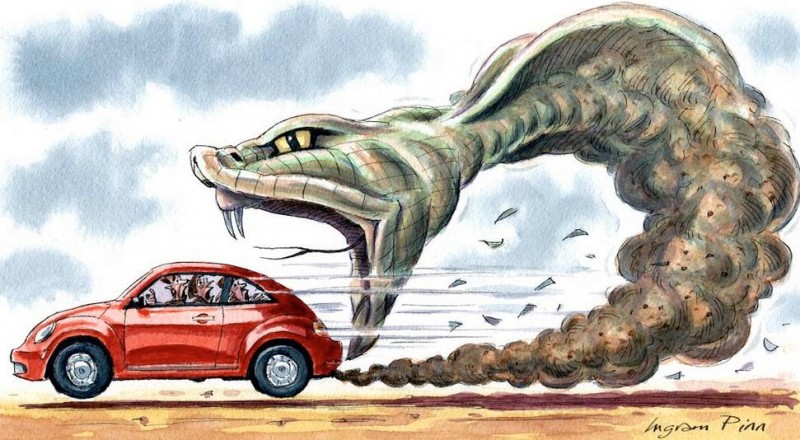The Roaring ‘20s: time to wake up to climate collapse

January 9th, 2020
As the world sat on the edge of a new decade in December, the news of Australian bushfires broke. Soon, apocalyptic scenes materialised, showing swift-legged Australian kangaroos failing to run fast enough to evade a raging climate. They were soon followed by humans.
The pictures and statistics on the scale of the fires that have emerged are a stark reminder to the world of the fragility of life in the face of climate change. At the same time, the planet also conveyed a message of crisis through severe flooding.
As Australia was burning, flash flooding in Indonesia prompted a record-breaking deluge turning city streets into roaring rivers, killing at least 66 people and displacing entire communties.
Unfortunately, the new decade now upon us is set to be littered with more universal planetary concerns that will require world leaders to wake up and take drastic measures to address. The rampant fires still scorching Australia is the first major hurdle to jump.
Victoria is roasting
Christmas spirit was lingering in the air when numerous Australian communities were urged to evacuate their homes as bush fires raged across the country.
The sky turned blood red as embers were pulled upwards by the winds, with columns of smoke so potent that they changed the weather, generating their own lightning and “fire tornadoes” that flared the fires further.
Fire tornados can be stronger than a typical storm, clearly demonstrated during Victoria’s bushfires last Monday as one lifted a fire truck, crushing a brave firefighter.
At least 25 people have died in the fires. The blaze has also destroyed more than 8.4 million hectares of land – an area the size of Ireland up in smoke.
Biodiversity has paid a grave price too, with hundreds of millions of animals, including a significant number of the country’s beloved koalas, believed to have died during the Australian inferno.
Despite the carnage, Sydney’s famous New Year’s Eve fireworks display lit up the sky in the metropolis. The calls of over 250,000 people for the country’s Prime Minister Scott Morrison to scrape the event in honour of lives lost in the fires went unheard.
“I can think of no better time to express to the world just how optimistic and positive we are as a country,” Mr Morrison said. This is how 2019 – the year that the world supposedly woke up to the climate crisis – ended for Australia.
What will the 2020s bring?
The latest UN assessments reveal that global emissions have climbed by 1.5 per cent every year over the last decade. Without colossal change, droughts will grow more punishing, storms more ruthless, and world hunger will become more prevalent if the climate status-quo persists.
And as scientists predict that temperatures will continue to climb in the new decade, global policy inaction blocks any sign of concrete progress.
To stay within the 1.5 degree temperature rise threshold – under which we will still face drastic impacts and changes to our way of life – the UN states that emissions must decline by 7.6 per cent every year this decade.
Don’t hold your breath that the radical policy change required across the board will come fast, with the latest lacklustre UN climate conference in Madrid confirming the continued laissez faire attitude of many of the world’s leading polluters.
All the while, the changing climate is altering our planet so fast that it is difficult to keep up with the latest cycle of bad news before the next wave of despairing data hits.
As the bush fires in Australia well and truly bring us into the new Roaring Twenties, we have an opportunity to reflect on how we want the new decade that has dawned upon us to play out.
Now is the time for world leaders to finally unite and bring about the changes required to tackle this global crisis head on, if they so wish.
For the sake of life on our planet, the same political and policy potholes that have plagued the race to halt runaway emissions over the last number of decades must not persist.
[x_author title=”About the Author”]







